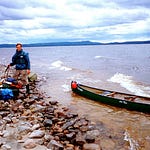
This is a follow-up to last week’s piece, “Pumping Iron at the Mind Gym.” In that, we talked about taking a concerted effort to get better at the fundamentals of knowledge work. Here, we explore how to improve faster once we’ve identified the skills we want to improve on. Enjoy, and as always let me know what you think via email or in the comments below.
If you come to a fork in the road, take it! — Yogi Berra
Wouldn't it be nice to get up to speed on a new project faster? To develop a skill critical to your new job faster?
Of course it would! But when we arrive at key junctures in our skill development process, which way do we go? How can we learn faster?
We all use paths of logic or mental shortcuts to arrive at our answers to problems. But when we're new in an area, we often have some faulty assumptions about how things work.
It's like stumbling onto a 5k race's finish line after taking a wrong turn and running an extra mile. I end up at the same finish line as everyone else, but not because I knew what I was doing. Plus, I'm way more tired.
But when asking someone else a question in a new domain, I often default to result based questions (yes or no question like is it a good idea to workout?), without exploring the path of logic behind it (e.g. why is working out good for you? How do different exercises impact your body?).
Until I explore the logic behind their conclusions, I won't be able to develop consistently good conclusions myself.
And that consistency is the key. I need a repeatable process (even with variance in outcome) if I want to derive solutions for myself.
Nobel Prize-winning physicist Richard Feynman talks about the common over-reliance on facts and under reliance on first principles in his autobiography: "Surely You're Joking, Mr. Feynman:"
All the guys in the class were holding up their French curve up at different angles, holding their pencil up to it at the lowest point and laying it along, and discovering that, sure enough, the tangent is horizontal. They were all excited by this ‘discovery’ - even though they had already gone through a certain amount of calculus and had already ‘learned’ that the derivative (tangent) of the minimum (lowest point) of any curve is zero (horizontal). They didn't put two and two together. They didn't even know they 'knew'.
He goes on to say one of my favorite lines of his:
I don't know what's the matter with people: they don't learn by understanding; they learn by some other way - by rote, or something. Their knowledge is so fragile!
Their knowledge is so fragile. At the slightest test, it cracks. Why?
Because they didn't explore the paths of logic that led to those answers. There was no path validation.
When you know what the building blocks are, you can play with them to create novel, yet valid, outputs. When you don't, it's hard to validate the outputs.
The sooner you can validate the paths the expert takes to get to their conclusions, the sooner you can graft those paths of logic to your own mental model of the world and create your own, novel conclusions.
It's like paying for a car and never learning to fix it yourself—you can do that, but it will likely cost you more over the life of your car than if you understand how everything under the hood works.
So how do you do this? You ask for process feedback.
Take your best guess at the path of reasoning to get a conclusion (your process), then validate it with someone who should understand that path (an expert).
Revealing your process can be scary. No-one wants to think they're not logical. Which is why when we start something new, it can be so hard to ask someone for feedback on the steps we took to get our conclusions.
So maybe what learning takes isn't just cleverness.
Maybe what learning takes is courage.
Courage to look dumb. Courage to reveal our potentially—sometimes likely—flawed line of thinking to someone we may not know well. Courage to be wrong. Without it, path validation is too scary.
But when you care more about getting better than looking dumb, you'll have the courage to practice path validation.
And the reward for learning faster? You get to solve bigger problems faster.
What's not to love about that?










